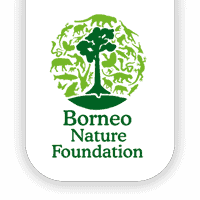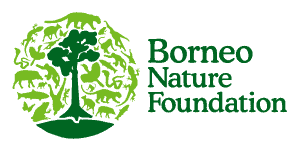Written by Dr. Susan Cheyne (BNF International’s Co-director)
In 2018, Indonesia was ranked in the top four countries with the highest number of Facebook and Instagram users globally. Indonesia is also recognised as one of the top primate habitat countries with the most prolific trade in wildlife. Eight species of gibbon are distributed across Indonesia; all of which are Endangered due to habitat loss, hunting and illegal trade. Surveys of Facebook and Instagram between 2015 and 2018 indicate that trade in gibbons – predominantly very young animals – continues to rise and now poses a major threat to their survival. Gaining a greater understanding of the dynamics of the gibbon trade by conducting research from source (poachers) to demand (buyers), will enable the development and implementation of an appropriate strategy to mitigate online trade and conserve wild gibbon populations. An average of 17 individual gibbons are identified for sale, creating an annual average total of 204. Accounting for the death of the adult female and the possible impact on the remaining individuals in the group, the loss could be as high as 612 – 1428 individuals lost from the wild. This offtake is unsustainable and even though the gibbons are not crossing international borders, the sale of gibbons on social media is illegal and Facebook and Instagram are complicit in facilitating this illegal activity.
For gibbons, unfortunately, no one knows precisely what impact hunting for bushmeat is having on wild populations. We do know that bushmeat hunting is impacting gibbon populations in some countries more than others e.g. Vietnam, Myanmar, China, Thailand and Laos PDR as well as specifically localised cultural hunting in the Mentawi Islands, Indonesia and removal of gibbons for the pet trade. The main direct threats to these apes are habitat loss, degradation and fragmentation, infectious disease and poaching (for bushmeat or deliberate killing due to conflicts over resources, usually cultivated foods). The relative importance of these threats varies by taxon and location. Poaching for bushmeat includes gibbon meat, although generally gibbons are not specifically targeted apart from in Mentawi Islands and for demand in China. The killing of the mother may enable opportunistic capture of infants, which are then sold, or gibbons are hunted on demand for sale as pets. Therefore, a thorough understanding of local circumstances is required to address the main threats to gibbons, as they cannot be considered in isolation from each other.
Demand for wildlife is a consequence of different factors that motivate people into buying and keeping wildlife as pets. To combat the demand, a strategy needs to be developed using persuasive techniques and targeted campaigns that will influence a change of behaviour among potential buyers and owners of small apes.
Female Javan Gibbon for sale on InstagramYoung Javan gibbon for sale on FacebookYoung gibbon for sale on Facebook, possibly Mueller’s gibbon
 |  |  |
| Female Javan Gibbon for sale on Instagram | Young Javan gibbon for sale on Facebook | Young gibbon for sale on Facebook, possibly Muellers gibbon |
Illegal hunting of gibbons and sale of the infants online is carried out opportunistically or to order. Hunters are often marginalised people who receive a fraction of the final sale costs for the infant. Demand for wildlife for the illegal trade forces people to remain dependent on illegal activities which impacts their income. By reducing and limiting the demand, the pressure on hunters to break the law will be reduced. A holistic approach to reducing small ape trade in Indonesia needs to be applied using a multi-disciplinary team and targeting, in synchrony, each link in the trade chain from top to bottom. Working closely with local authorities and other local NGOs will help to ensure the long-term sustainability of the efforts.
The involvement of local communities in habitat patrolling with local authorities provides them with alternative activities to hunting. It gives them the opportunity to be trained in using SMART software, an additional source of income, and a sense of pride in the role of protecting the forest and its animals.
At the supply level, the types of hunters and traders, together with their motives need to be identified and addressed. Patrolling of hunting hotspots and targeted law enforcement efforts of online dealers will reduce poaching and trade. If economic drivers are uncovered, hunters can be offered alternatives: for example, joining SMART patrol teams. Capacity-building among the Indonesian judiciary will facilitate an increase in prosecution success and higher penalties. Maximum exposure of all arrests and prosecutions in the media will create a strong deterrent to traders.
The volume of gibbons available for sale on social media indicates that the extraction of infants from the wild is still ongoing and is unsustainable, and possibly increasing as demand is fuelled by the increased online exposure of gibbons as possible pets. As the gibbons are not crossing international borders, this trade is receiving very little attention or funding. The sale of gibbons on social media is illegal and Facebook and Instagram and other platforms are complicit in facilitating this illegal activity. Funders and social media platforms need to be doing more, simply removing the accounts does not stem the trade as new accounts can be opened. Bypassing information about those people/groups to local law enforcement, social media platforms can proactively help to stem this damaging trade.

Photo by Duncan Murrell | BNF | UPT LLG CIMTROP


